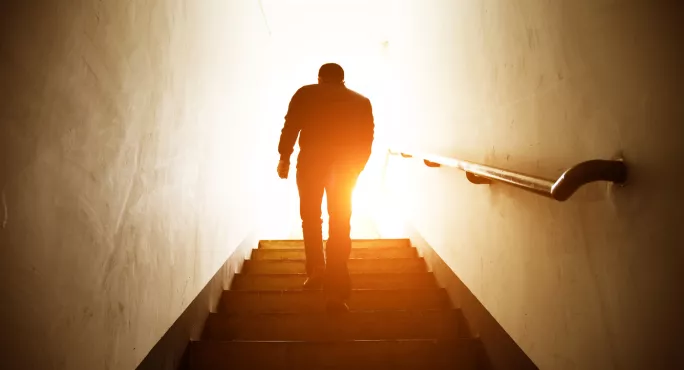- Home
- What happened when Ofsted came for a visit
What happened when Ofsted came for a visit

Ofsted has already visited our school. It came last week, as part of a pilot, in advance of rolling out the new visits to schools on 28 September.
Our school was due an inspection in the summer term of 2020. Then, obviously, Covid happened.
When our academy trust was sent an email asking if any school was willing to be part of a pilot for visits, I thought: “Well, it’s been four years since our last inspection. We need to get back into the Ofsted mind frame.” (Although you never really leave the Ofsted mind frame, do you?) And the reality is that we could have got the call on 28 September, anyway.
Our school went into special measures in 2014, not long after I’d taken over the headship. Then our last inspection was in 2016, when we came out as “good”. As a school, we’re getting stronger.
We thought we’d made such a good effort during lockdown, supporting pupils, and there was a lot to celebrate. So I asked SLT, and they agreed that it was a good idea to invite Ofsted in.
Inviting Ofsted into school
We were given notification over the summer holidays that they would be coming. We were told that the lead inspector would contact us on the Monday, around 10am. At 10am on the dot, she rang. She just wanted to talk about logistics: the room they were going to be in, the fact that they’d bring their own refreshments, that no more than six adults could be in the room at any one time.
There was no tour of the school. We adapted our intervention room so that the inspectors could be two metres apart, and staff could also be two metres apart from each other and from them. Neither of the inspectors left the room, unless it was to go to the toilet. They stayed together all the time.
It was quite a straightforward process. It was almost like a fact-finding mission, really. Ofsted was very clear that it was only coming to see what we were doing now. That was quite challenging: we wanted to talk about what we’d been doing before.
The inspectors began with a briefing, and then there was a curriculum meeting, a behaviour meeting, an attendance meeting, and a safeguarding meeting. Each of the meetings lasted about half an hour, apart from the curriculum meeting, which was around an hour.
It began at 10am, and went all through the day. But it wasn’t too intense. I was in all the meetings, but there were regular breaks in between.
Nothing too challenging
The questions they asked weren’t difficult to answer. The first question was: how has Covid affected your pupils? Then they asked how I’ve managed staff wellbeing, and how I’ve managed my own wellbeing.
I also talked about the school’s contextual information: we have a high percentage of pupil-premium children, and we had to make sure that all the children had computers during lockdown to access our virtual offer. Ofsted was very receptive to listening to our experiences, but made it clear that the focus would be on moving forwards now we were back.
In the curriculum meeting, inspectors asked how we were making sure the curriculum was fully operational, now that we were back at school. Were there any subjects we weren’t teaching? How were we addressing lost learning? None of it was too challenging. Schools have that information to hand, anyway.
During the attendance meeting, they asked us whether all the pupils had returned, and whether there were any pupils who were reluctant to attend.
They didn’t require any paperwork at all: they took what we were saying at face value. I did make copies of paperwork for them, but I didn’t have to - they left them in the room at the end of the day.
‘There’s no judgement’
They were very conscious of not adding to our workload. Over and over again, they said: “We don’t need to see any paperwork.” They didn’t want to see any documents that we wouldn’t have in school normally, anyway.
The two inspectors were extremely polite, accommodating and respectful to the school. They took in our agenda: they were aware that we’d only been back in school a week at that point. They kept saying, throughout the day, “There’s no judgement. There’s no judgement.”
Our very final meeting with them was when, in normal circumstances, they would discuss the letter that would be sent afterwards. We were a pilot, so we didn’t have a letter. But they talked through with us what they would have put in it, if there had been one.
They went through a number of bullet points, and then the things they’d written beneath. They simply reported back what we’d told them. They wanted to check for accuracy: “Have we missed anything? Is there anything we’ve left out?”
It was very factual: there was no judgemental language at all. It covered precisely what we had done and there was no judgement in there. They were telling it as it is, really.
We actually thought it was a positive experience. This was our opportunity to share what we’d been doing, while also mentioning some of the challenges we’d been facing under Covid.
It was also helpful in terms of formulating plans. When someone asks questions, and you have to go through everything, it helps you to think things through, in a way that perhaps you hadn’t beforehand.
So I didn’t see it as a box-ticking exercise. I saw it as a supporting, reflective, thought-provoking exercise. It didn’t feel like an Ofsted inspection: it felt like a fact-finding exercise, led by an inspector.
Simon Bush is headteacher of The Green Way Academy, in Hull
Register with Tes and you can read two free articles every month plus you'll have access to our range of award-winning newsletters.